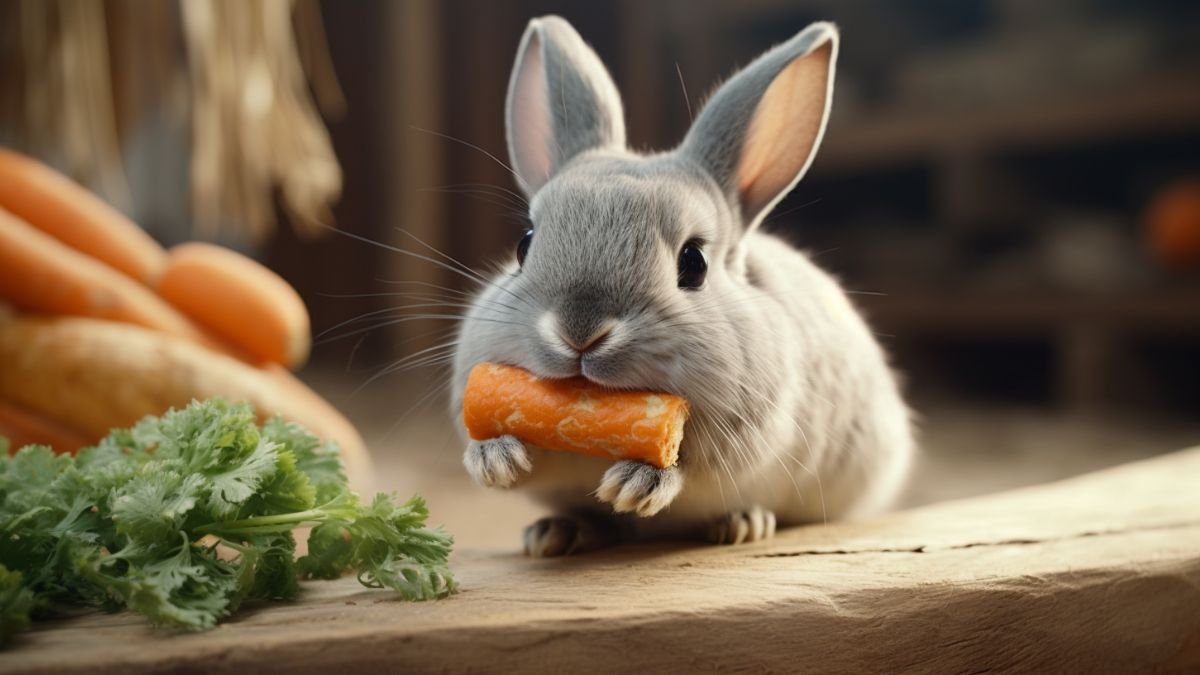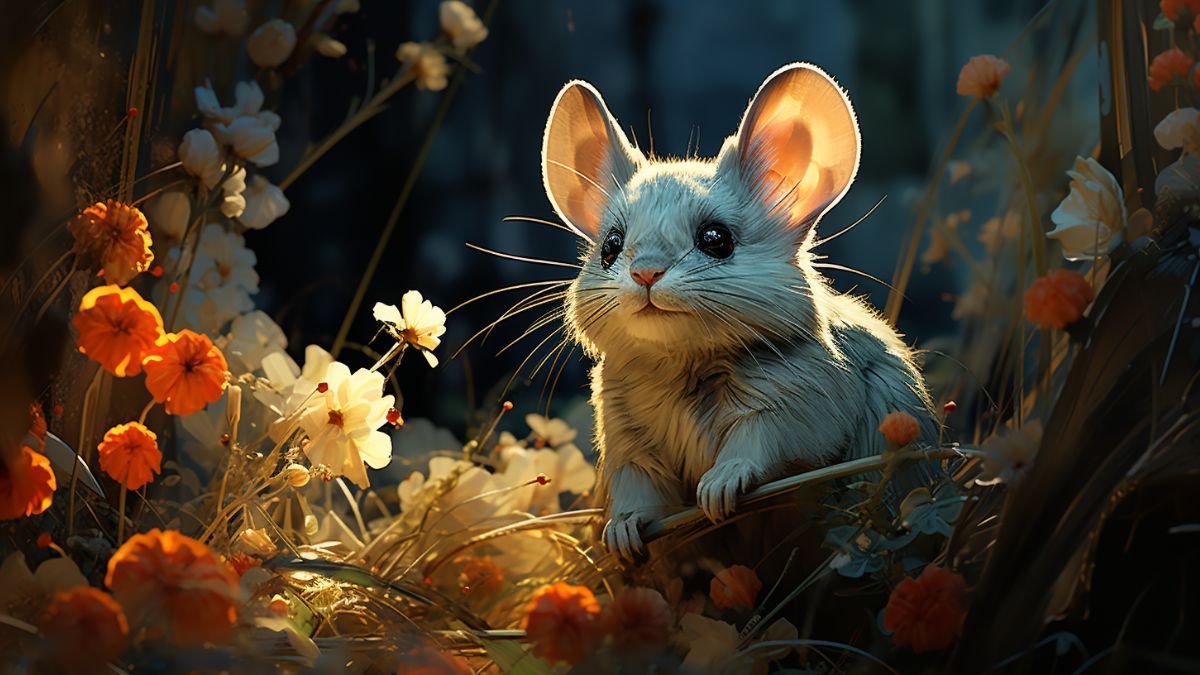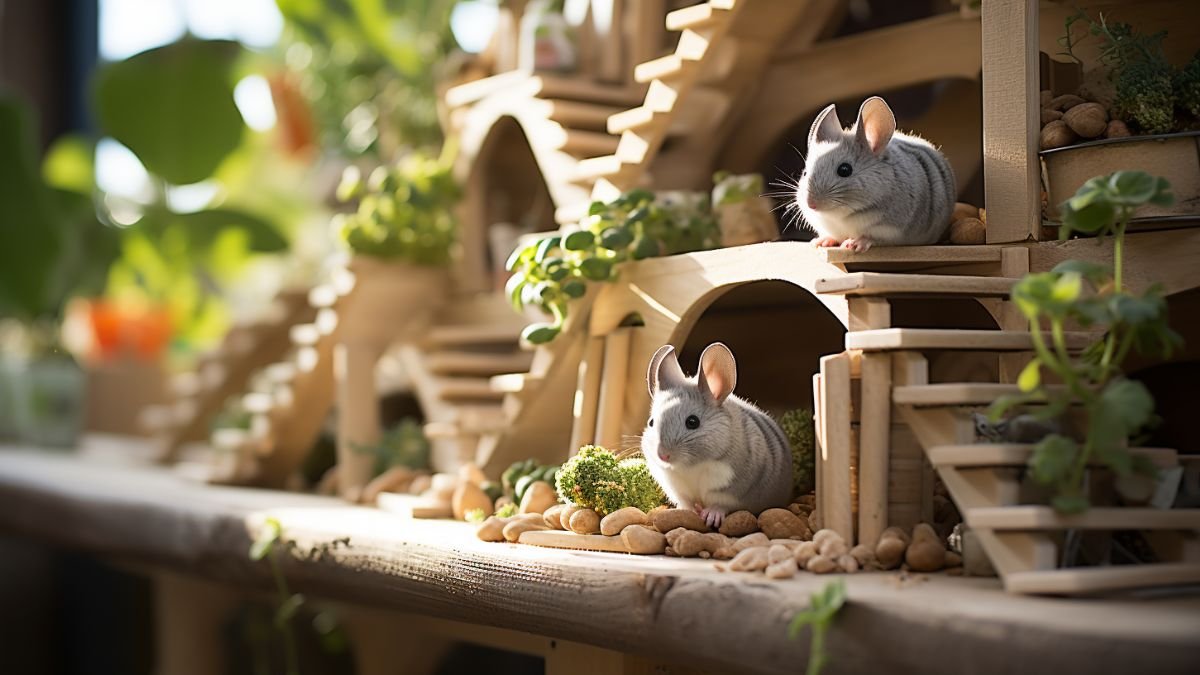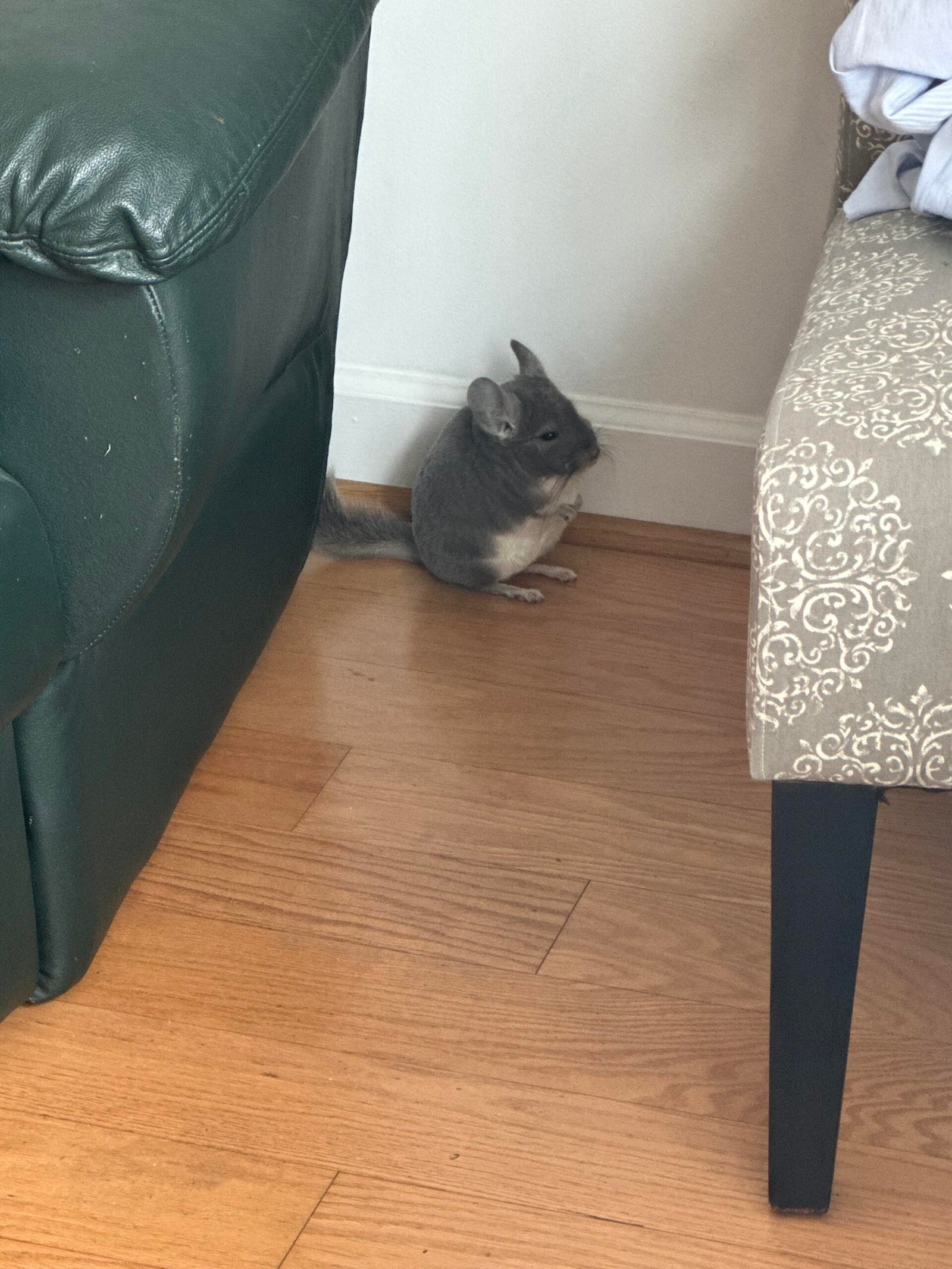
If you have a single chinchilla at home, you might worry about it feeling lonely. These fluffy little creatures are social by nature and need attention to stay happy.
But how can you keep your chinchilla company when it’s all alone? You’ll discover simple and effective ways to make sure your chinchilla feels loved and entertained every day. Keep reading to learn how to turn your pet’s alone time into a joyful experience.
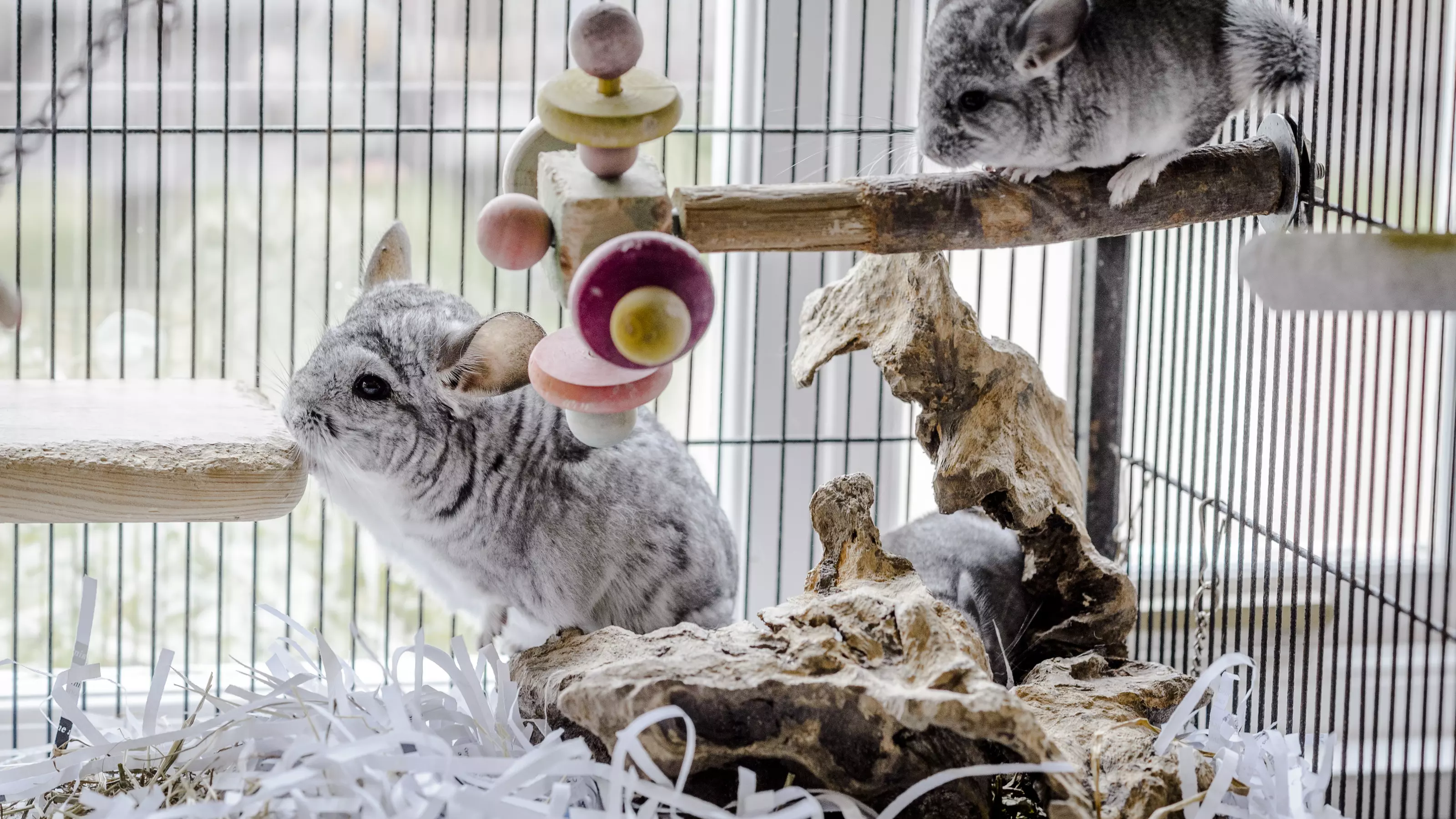
Credit: www.bluecross.org.uk
Chinchilla Social Needs
Chinchillas are social animals by nature. They enjoy company and interaction. A single chinchilla may feel lonely without friends.
Understanding their social needs helps keep them happy and healthy. Meeting these needs reduces stress and boredom.
Natural Behavior And Social Bonds
In the wild, chinchillas live in groups. They groom and play with each other daily. These bonds give them comfort and safety.
Lonely chinchillas may show signs of sadness or anxiety. They might become less active or start chewing on cage bars.
Signs Your Chinchilla Needs More Attention
Watch for changes in behavior. A lonely chinchilla might sleep more or stop eating well. It may also become aggressive or shy.
Notice if your pet seeks your company often. This shows it wants more interaction and playtime.
Ways To Provide Social Interaction
Spend time with your chinchilla every day. Talk softly and offer gentle pets. Let it explore outside the cage safely.
Provide toys and safe objects to chew. Rotate these items to keep interest high. Play helps reduce loneliness and boredom.
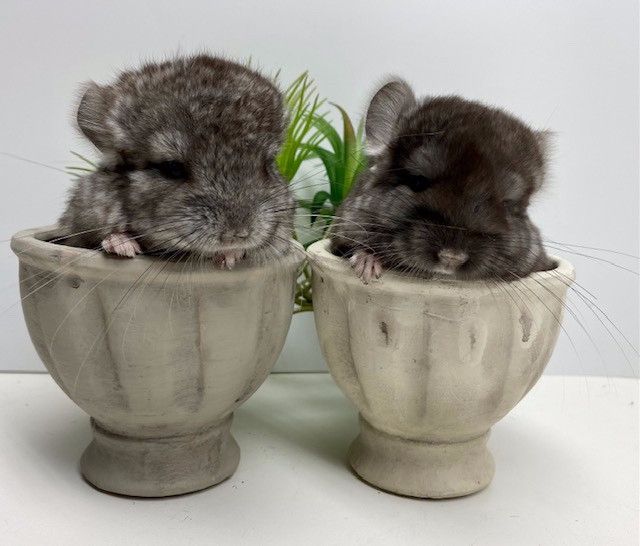
Credit: www.chinchillabox.com
Signs Of Loneliness
Chinchillas are social animals. They enjoy company and interaction. When alone, they may feel lonely. Recognizing signs of loneliness helps you take action early. Watch your chinchilla closely for changes in behavior or mood.
Changes In Activity Levels
A lonely chinchilla may become less active. It might stop exploring or playing. Sometimes, it may seem tired or slow. Lack of energy can signal sadness or boredom.
Excessive Grooming Or Fur Loss
Lonely chinchillas sometimes groom themselves too much. This behavior can cause bald spots or skin irritation. Over-grooming is a clear sign of stress or anxiety.
Increased Vocalizations
Listen for unusual sounds. A lonely chinchilla may make more noise than usual. Loud squeaks or continuous chirping can express distress or a call for attention.
Loss Of Appetite
Loneliness can affect eating habits. A chinchilla may eat less or stop eating. This change can lead to health problems if ignored.
Hiding And Avoidance
A lonely chinchilla may hide more often. It may avoid interaction with you or toys. This withdrawal is a sign it feels unsafe or unhappy.
Creating A Stimulating Environment
Creating a stimulating environment is key to keeping a single chinchilla happy. Chinchillas are active and curious animals. They need toys, space, and activities to stay busy and healthy.
A lively cage helps stop boredom and loneliness. It encourages natural behaviors like jumping and chewing. This section shows how to build a fun space for your chinchilla.
Provide Plenty Of Safe Toys
Toys keep chinchillas entertained and active. Wooden chew toys help keep their teeth healthy. Hang swings and ladders to offer climbing chances. Rotate toys often to keep things fresh and fun.
Design A Multi-level Cage
Chinchillas love to jump and climb. A tall cage with shelves adds exercise options. Make sure shelves are wide and secure. Add ramps or bridges to connect levels.
Include Hiding Spots And Tunnels
Chinchillas feel safe with places to hide. Add small boxes or tunnels inside the cage. These spots reduce stress and give privacy. Change their location sometimes to spark curiosity.
Offer Dust Baths Regularly
Dust baths keep chinchillas clean and happy. Set up a shallow container with chinchilla dust. Allow your pet to roll and play inside. Baths provide fun and help avoid skin issues.
Daily Interaction Tips
Daily interaction is key to keep a single chinchilla happy and healthy. These animals are social but can thrive alone with the right care. Spending time with your chinchilla every day helps reduce loneliness. It also builds trust between you and your pet.
Small actions daily can make a big difference. Here are some simple tips to interact with your chinchilla and keep it engaged.
Speak Softly And Calmly
Chinchillas respond well to gentle voices. Talk to your pet in a soft tone. This comfort helps lower their stress. It also makes your chinchilla feel safe and cared for.
Hand-feed Treats
Offer small treats by hand. This encourages bonding and trust. Use healthy snacks like dried rose hips or plain oats. Hand-feeding makes your chinchilla excited to see you daily.
Spend Time Outside The Cage
Let your chinchilla explore a safe play area. Supervise closely to avoid accidents. This free time helps your pet exercise and stay curious. It also creates a chance for you to interact closely.
Offer Gentle Petting
Many chinchillas enjoy soft petting. Stroke their fur gently on the back or head. Watch their reaction to know if they like it. Petting calms chinchillas and strengthens your bond.
Use Toys For Mental Stimulation
Introduce chew toys and tunnels. Toys keep your chinchilla busy and happy. Rotate toys often to keep interest high. Playing with toys mimics natural behaviors and prevents boredom.
Using Toys And Enrichment
Using toys and enrichment helps keep a single chinchilla happy. These animals are curious and active. They need things to do to stay busy and avoid boredom. Toys and enrichment give them mental and physical exercise. This helps reduce stress and loneliness.
Providing a variety of toys keeps your chinchilla interested. Different textures, shapes, and sizes make playtime exciting. Enrichment also encourages natural behaviors like chewing and climbing. This is important for their health and well-being.
Providing Safe Chew Toys
Chinchillas have strong teeth that grow constantly. Chew toys help wear down their teeth naturally. Use wooden blocks, pumice stones, or untreated branches. Avoid plastic or painted items that can be harmful. Rotate toys often to keep chewing fun and fresh.
Creating Climbing And Hiding Spots
Chinchillas love to climb and explore. Add shelves, ramps, and tunnels inside their cage. These create a small playground for exercise and fun. Include hiding places like small boxes or huts. It helps them feel safe and less lonely.
Introducing Puzzle Toys
Puzzle toys challenge your chinchilla’s mind. They can work to get treats or move parts around. These toys stimulate thinking and reduce boredom. Start with simple puzzles and increase difficulty over time. Always supervise to ensure safety during play.
Safe Handling Practices
Safe handling practices are key to keeping a single chinchilla happy and calm. Gentle and careful handling builds trust between you and your pet. It reduces stress and helps prevent injuries.
Chinchillas have delicate bones and soft fur. Rough handling can hurt them easily. Learning how to hold and touch your chinchilla safely improves your bond. It also keeps your pet comfortable during interactions.
Approach Your Chinchilla Calmly
Move slowly and speak softly near your chinchilla. Sudden movements or loud sounds can scare it. Let your chinchilla see your hands before you touch it. This helps the chinchilla feel safe and less nervous.
Support The Body Properly
Always support your chinchilla’s body with both hands. Place one hand under its chest and the other under its back legs. Never pick up a chinchilla by its tail or scruff. Proper support prevents injuries and makes your pet feel secure.
Limit Handling Time
Keep handling sessions short at first. Start with a few minutes and slowly increase the time. Long handling can stress your chinchilla. Watch for signs of discomfort or stress and stop if needed.
Create A Safe Environment
Handle your chinchilla in a quiet, safe area. Avoid places with loud noises or lots of people. Use a soft surface like a towel or your lap for extra comfort. A calm space helps your chinchilla relax during handling.
Establishing A Routine
Chinchillas are social animals that enjoy routine. A steady daily schedule gives them comfort and reduces loneliness. It helps your chinchilla feel safe and cared for. Establishing a routine also builds trust between you and your pet.
Consistent Feeding Times
Feed your chinchilla at the same time each day. This predictability makes your pet feel secure. Use fresh food and clean water every time. A regular feeding schedule also helps keep your chinchilla healthy.
Regular Play And Interaction
Set specific times to play and interact daily. Short, frequent sessions work best for chinchillas. Use safe toys and gentle handling. This routine strengthens your bond and keeps your chinchilla active.
Quiet Rest Periods
Chinchillas need quiet time to rest and sleep. Create a calm environment during their sleep hours. Avoid loud noises or sudden movements. A peaceful space helps your chinchilla feel relaxed and less lonely.
Cleaning And Cage Maintenance
Clean your chinchilla’s cage regularly on a set schedule. A clean home prevents stress and illness. Choose a time when your pet is less active. This routine shows care and keeps your chinchilla happy.
Considering Companion Options
Considering companion options is important to keep a single chinchilla happy. Chinchillas are social animals. They enjoy having friends around. But adding a companion is not always simple. It needs careful thought and planning.
Choosing the right companion can reduce loneliness. It also helps your chinchilla stay active and playful. Each option has its own benefits and challenges. Understanding these can help you decide the best choice.
Introducing Another Chinchilla
Adding a second chinchilla is the most natural option. They can groom and play with each other. This reduces stress and boredom. Introduce them slowly in a neutral space. Watch their behavior for signs of acceptance.
Using Toys And Enrichment Items
Toys can keep your chinchilla busy and entertained. Chew toys, tunnels, and climbing shelves work well. These items mimic social interaction. They also encourage exercise and curiosity. Rotate toys often to keep interest high.
Spending More Time Together
Spend extra time with your chinchilla daily. Talk softly and offer treats by hand. Gentle play and petting build trust. Interaction helps reduce loneliness. Your presence can be very comforting.
Health And Behavior Monitoring
Health and behavior monitoring is essential for a happy single chinchilla. Watching your pet closely helps you spot any signs of stress or illness early. A lonely chinchilla might show changes in how it acts or looks. Regular checks keep your chinchilla safe and comfortable.
Understanding your chinchilla’s normal behavior helps you notice when something is wrong. Pay attention to eating habits, activity levels, and social behavior. These clues tell a lot about your pet’s well-being.
Watch For Changes In Eating And Drinking
A healthy chinchilla eats and drinks regularly. Sudden loss of appetite or thirst can signal stress or sickness. Keep fresh food and water available at all times. Track how much your chinchilla eats each day to catch problems early.
Observe Activity And Play Levels
Chinchillas are active and curious animals. A lonely chinchilla might become less playful or restless. Notice if your chinchilla hides more or stops exploring. These changes can show loneliness or health issues.
Check For Signs Of Stress Or Discomfort
Stress can affect a chinchilla’s health deeply. Look for teeth grinding, fur chewing, or excessive grooming. These signs often mean your pet feels uneasy. Provide toys or safe spaces to help reduce stress.
Keep A Regular Health Log
Write down daily observations about your chinchilla’s behavior and health. A simple log helps you track patterns or sudden changes. Share this information with your vet during check-ups for better care.

Credit: www.whimsysmenagerie.com
Frequently Asked Questions
How Can I Prevent My Chinchilla From Feeling Lonely?
Spend time daily playing and talking to your chinchilla to keep it happy and engaged.
What Toys Are Best For A Single Chinchilla?
Provide chew toys, tunnels, and exercise wheels to keep your chinchilla active and entertained.
How Often Should I Interact With My Single Chinchilla?
Interact with your chinchilla at least once a day for 20-30 minutes to reduce loneliness.
Can Background Noise Help A Lone Chinchilla Feel Less Lonely?
Soft music or a quiet radio can comfort your chinchilla and reduce feelings of loneliness.
Is It Safe To Keep A Single Chinchilla Without A Companion?
Yes, with enough attention and stimulation, a single chinchilla can live happily alone.
What Signs Show A Chinchilla Is Lonely Or Stressed?
Look for restlessness, chewing cage bars, or lack of appetite as signs of loneliness.
How Does A Proper Cage Setup Help A Single Chinchilla?
A spacious cage with hiding spots and toys keeps your chinchilla busy and less lonely.
Should I Consider A Companion For My Single Chinchilla?
Companionship helps, but only if introduced carefully to avoid fighting and stress.
Conclusion
Keeping a single chinchilla happy takes time and care. Provide toys and regular play sessions. Talk softly and spend quiet moments together. A clean, cozy cage helps them feel safe. Watch their mood and activity for signs of loneliness. Small steps make a big difference in their life.
Patience and love create a strong bond. Your chinchilla will feel less lonely and more loved every day.

